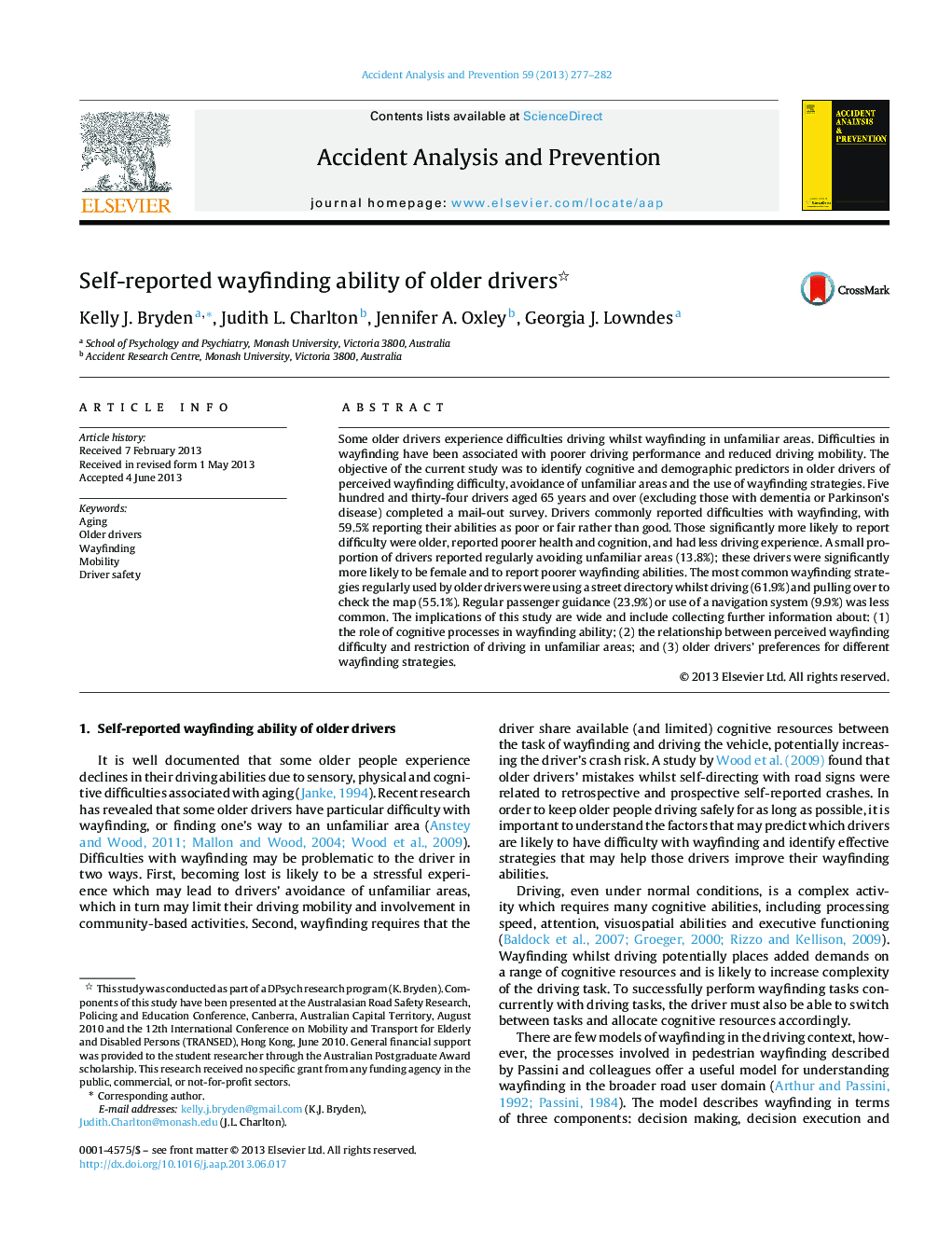| Article ID | Journal | Published Year | Pages | File Type |
|---|---|---|---|---|
| 6966136 | Accident Analysis & Prevention | 2013 | 6 Pages |
Abstract
Some older drivers experience difficulties driving whilst wayfinding in unfamiliar areas. Difficulties in wayfinding have been associated with poorer driving performance and reduced driving mobility. The objective of the current study was to identify cognitive and demographic predictors in older drivers of perceived wayfinding difficulty, avoidance of unfamiliar areas and the use of wayfinding strategies. Five hundred and thirty-four drivers aged 65 years and over (excluding those with dementia or Parkinson's disease) completed a mail-out survey. Drivers commonly reported difficulties with wayfinding, with 59.5% reporting their abilities as poor or fair rather than good. Those significantly more likely to report difficulty were older, reported poorer health and cognition, and had less driving experience. A small proportion of drivers reported regularly avoiding unfamiliar areas (13.8%); these drivers were significantly more likely to be female and to report poorer wayfinding abilities. The most common wayfinding strategies regularly used by older drivers were using a street directory whilst driving (61.9%) and pulling over to check the map (55.1%). Regular passenger guidance (23.9%) or use of a navigation system (9.9%) was less common. The implications of this study are wide and include collecting further information about: (1) the role of cognitive processes in wayfinding ability; (2) the relationship between perceived wayfinding difficulty and restriction of driving in unfamiliar areas; and (3) older drivers' preferences for different wayfinding strategies.
Related Topics
Physical Sciences and Engineering
Chemical Engineering
Chemical Health and Safety
Authors
Kelly J. Bryden, Judith L. Charlton, Jennifer A. Oxley, Georgia J. Lowndes,
